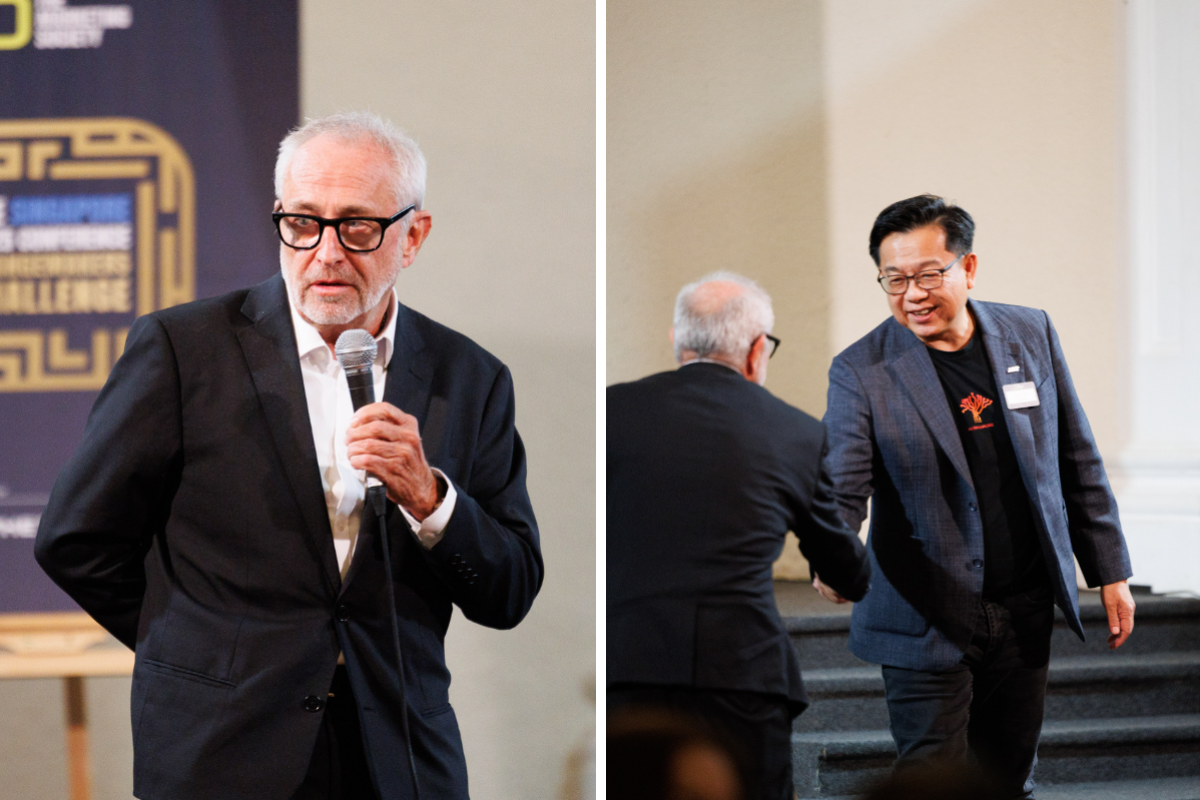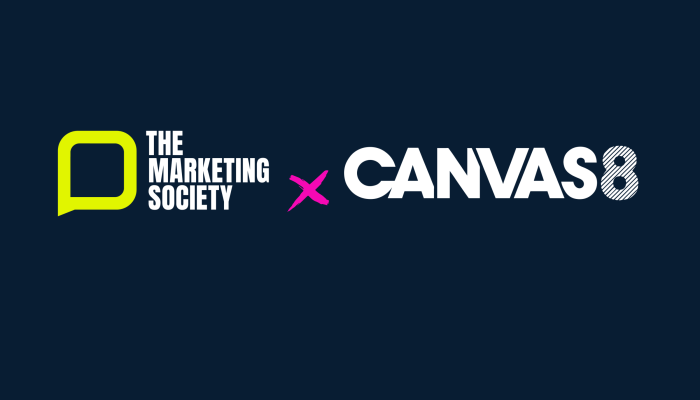AI can now make ads, write copy and compose music. It’s easy to think creativity and intuition are under threat. But perhaps we need to see it differently: when used well, AI can replace or replicate many things that we do, but what it can’t do, or doesn’t do well can help us see, and put more value on, what it is that makes us human.
At the Changemakers Conference, together with Laurence Liew from AI Singapore, we explored what AI can’t do and why that matters. AI’s limitations define our true value: empathy, ethics, imagination and meaning. Will these qualities make us irreplaceable? That remains to be seen but what they will shape is the way we use technology responsibly.
What I heard from other speakers resonated deeply; it echoed my own belief that AI’s greatest potential lies not in replacing creativity or intelligence but in amplifying our intentions. It reminded me that progress has always been driven not just by invention, but by intuition, imagination and empathy that give it meaning.
AI Amplifies Empathy and Creativity
Whenever a new technology emerges, fear isn’t far behind. People once thought spreadsheets would end accounting. They didn’t, they made accountants more valuable.
The Niceaunties project by artist Wenhui Lim shows what’s possible when we let technology expand, not replace, our humanity. Using generative AI, Wenhui turns everyday “aunties” into icons of care and imagination. Her work reminds us that when AI becomes a mirror for emotion and memory, it turns data into empathy.

Think like artists and architects: build universes, not just messages. Use AI to expand your vision, not to shrink your role.
Peter Dixon
Brand Fundamentals Don’t Change Meaning Wins Every Time
David Aaker, Vice Chairman at Prophet, reminded us that brand fundamentals - clarity, consistency and purpose - still matter, even in a world shaped by AI. Tom Child from JLR echoed this, showing how heritage gives brands the confidence to evolve. Amid disruption, those anchors of meaning keep both brands and people steady.
Award-winning TV producer Maz Farrelly closed the Conference with the sharpest of truths: “Dull costs dollars.” Boring doesn’t work. Emotion drives attention.
It’s Not About the Tech - It’s About the Culture
What separates AI projects that thrive from those that stall isn’t the algorithm, it’s the culture behind them. As my co-presenter Laurence Liew put it:

“AI projects don’t fail because of bad data, they fail because of bad culture.”
Laurence Liew
After leading hundreds of projects at AI Singapore, his conclusion is simple: success comes from the belief that AI exists to empower people, not replace them. Jon Stona from Airwallex said it well, real progress begins when leaders lean into discomfort. Building an AI-ready culture takes that same courage - a willingness to experiment, learn and grow. A human-centered culture lays the foundation for everything that follows. Once that belief is in place, principles and frameworks can guide how technology truly serves people.
From Brand Meaning to Human-Centered AI
If meaning keeps brands grounded, human-centered principles ensure AI remains anchored in purpose. As technology accelerates, our responsibility is to make sure progress stays human.
At Prophet, we’re starting to define some Principles of Humanising AI Strategy and Deployment; a guide for leaders to build technology with empathy, trust and intention.
Four Principles for Humanising AI Strategy and Deployment
Augmented Intentionality
AI should make the purpose behind a task clearer, not more complicated.
Frictionless Agency
It should simplify decisions while keeping humans in control.
Contextual Empathy
It should understand emotion and adapt to human context.
Co-Constructive Learning
Humans and AI should both “improve” through collaboration.
These principles ensure AI doesn’t just make us efficient, it should allow us to trust our outputs more. Tracy Hall’s heartfelt story about the loss of trust underscored this idea. Trust doesn’t happen by default; it must be designed. Whether in products, brands or AI systems, people must feel safe, seen and understood.
That belief drives our work at Prophet. Through our AI Accelerator Network, a collaboration with best-in-class technology partners curated around client needs, we’re helping organisations adopt and scale AI responsibly, designing systems, cultures and experiences that amplify intuition, empathy and imagination.
Our Human Advantage
Thomas Edison once said the light bulb wasn’t the invention, it was light on demand. The same goes for AI. Its value isn’t in the code, it’s what it enables.
Every speaker at The Changemakers Conference returned to a single truth: the future belongs to those who keep humanity at the centre of progress.
AI can predict, optimize, and automate, but it’s “us” that can imagine, empathize and inspire. That’s our real advantage, and we need to be vigilant to keep it.
And that’s how we drive Uncommon Growth.



